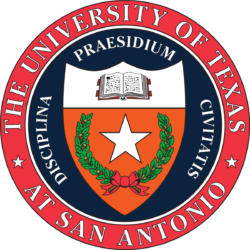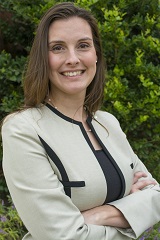
Contact Info:
210-458-4428
heather.shipley@utsa.edu
Bio:
Dr. Heather J. Shipley is Vice Provost of Academic Affairs and Dean of University College. She also holds the Burzik Professorship in Engineering Design. She holds a BS degree in Chemistry from Baylor University, Waco, Texas and a MS and Ph.D. in Environmental Engineering from Rice University, Houston, Texas.
Dr. Shipley’s research interests and expertise are in water chemistry, water treatment, and environmental nanotechnology. Her research group focuses on interdisciplinary topics such as innovative water treatment processes including the use of novel technologies such as nanotechnology, low impact development and water quality monitoring, and physiochemical interactions of contaminants to the built environment. Research has been supported by the National Science Foundation, US Dept. of Agriculture, US Bureau of Reclamation, and the Texas Commission on Environmental Quality and others.
Dr. Shipley is passionate about undergraduate education, engineering education and mentoring unrepresented groups. She is involved in and a member of several professional organizations such as the American Chemical Society (ACS), Association of Environmental Engineering & Science Professors (AEESP), American Society of Engineering Education (ASEE).
Dr. Shipley has also received several prestigious teaching and research awards for instance the University of Texas Regents’ Outstanding Teaching Award, UTSA’s Faculty Service to Undergraduate Research and Creative Inquiry Award and is a part of the UTSA’s Academy of Distinguished Teaching Scholars.
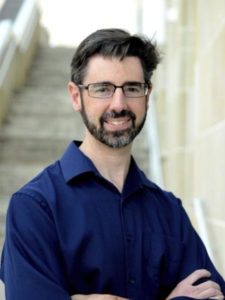
Contact Info:
BSE 2.106
mark.appleford@utsa.edu
Bio:
Dr. Mark Appleford is the Associate Dean of Undergraduate Programs, College of Engineering, UTSA. The focus of his current research is to examine bone cell interactions with biomaterials and to study the pathways of cell differentiation into mature tissues. To clarify cell-biomaterial interactions we examine the integrin receptor activity of cells during their first contact with a biomaterial. Sub-cellular signaling pathways have been identified to track key players such as the stress activated protein kinases (SAPK), viability markers such as P38 and differentiation gene transcription factor RUNX2. By following pathways from outside the cell, through internal protein signaling and finally to the production of specific proteins by the cell, we can help explain the mechanisms responsible for implant rejection or successful long-term integration. Most research in this field has been performed with experiments of 2D cell monolayers. His laboratory has developed a variety of techniques to measure these signals within 3D scaffolds to better understand the mechanisms of cell behavior. The laboratory also explores the tissue-level formation of new bone through the use of bioreactor tissue engineering. Fluid perfusion chambers have been used to grow volumes of bone tissue in the laboratory for up to three months. By studying the morphology of the new tissue, his team can help refine ideal culture conditions for replacement grafts while identifying the precise fluid shear mechanical forces associated with differentiation pathways.
In addition to these basic science approaches, the laboratory works on the large scale reconstruction of bone and cartilage tissue using natural ceramic scaffolds. Calcium phosphate foams serve as a template for bone bridging of large segmental defects in the cranium, femur and tibia. The approach of this research has been to bridge a large defect for early integration while still allowing for natural blood vessel and bone formation that ultimately replaces the scaffold within a year.
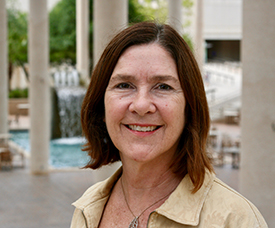
Contact Info:
MB 3.216A – Main Campus
juliet.langman@utsa.edu
Bio:
Dr. Juliet Langman is the Associate Dean for Graduate Studies in the College of Education and Human Development and Professor of Applied Linguistics in the Department of Bicultural-Bilingual Studies at UT- San Antonio. She received her B.S, degree (1980) from Georgetown University in French, her M.A. degree (1987) from Stanford University in linguistics and her Ph. D. degree (1989) from Stanford University in language, literacy and culture. Her primary teaching duties are in the areas of classroom discourse analysis, ethnography of communication and second language learning and teaching.

Contact Info:
Office: AET 3.203
Phone: (210) 458-6153
Email: Kelly.Nash@utsa.edu
Bio:
Dr. Kelly Nash is the Associate Professor and Graduate Advisor of Record, Department of Physics at UTSA. Her areas of specializations include biophotonics. nano-bio interfaces, nanoparticle synthesis and spectroscopy, and nanotransducers.
Her research team develops and implements nanoparticles for biophysical and medical applications. The goal of our studies are to develop unique nanoparticles which serve as nanotransducers of electromagnetic energy (e.g. optical, magnetic, and electric) to impart spatial-temporal control on biological systems. Research topics include:
- Nanoparticles as Remote Optical Transducers for Biomedical Applications
- Elucidating Combinatorial Effects of Nanoparticles and Electromagnetic Stimulation
- Light (Laser) Assisted Synthesis of Nanoparticles & Applications in Medicine and Energy
- Photoacoustic (Optoacoustic) Characterization and Signatures of Nanomaterials for Biomedical Applications
- All Optical Photoacoustic Spectroscopy and Imaging
- Polymeric Nanoparticles for Immunological Drug Delivery Applications
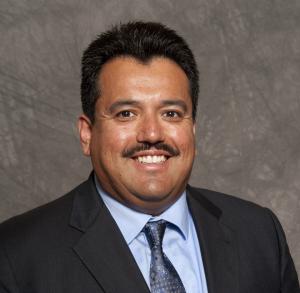
Contact Info:
MB 3.216 C – Main Campus
jorge.solis@utsa.edu
210-458-5575
Bio:
Dr. Jorge L. Solis is an Assistant Professor in the Department of Bicultural-Bilingual Studies in the College of Education and Human Development at the University of Texas at San Antonio. He holds a PhD in Language, Literacy, and Culture from the University of California, Berkeley and an A.B. in Public Policy from Stanford University.
His research interests include the development of academic literacy practices with second-language learners, preparing novice bilingual teachers, tensions and adaptations of classroom learning activity, and understanding the academic transitions of older, school-age language minority students. He is currently collaborating on two related projects developing effective ways to integrate science-language pedagogy with elementary and secondary school preservice teachers working with English learners and bilingual students. He is Co-Principal Investigator of Secondary Science Teaching for English Language and Literacy (SSTELLA). SSTELLA is a National Science Foundation DRK-12 longitudinal study examining the impact of the integration of second-language teaching pedagogy with novice secondary school science teachers working with English Language Learners.
As a former National Science Foundation CADRE Fellow, his research has been funded by Spencer Foundation and Center for Latino Policy Research. He has presented his work at the American Educational Research Association, American Anthropological Association, National Association for Research on Science Teaching, and National Association for Bilingual Education.
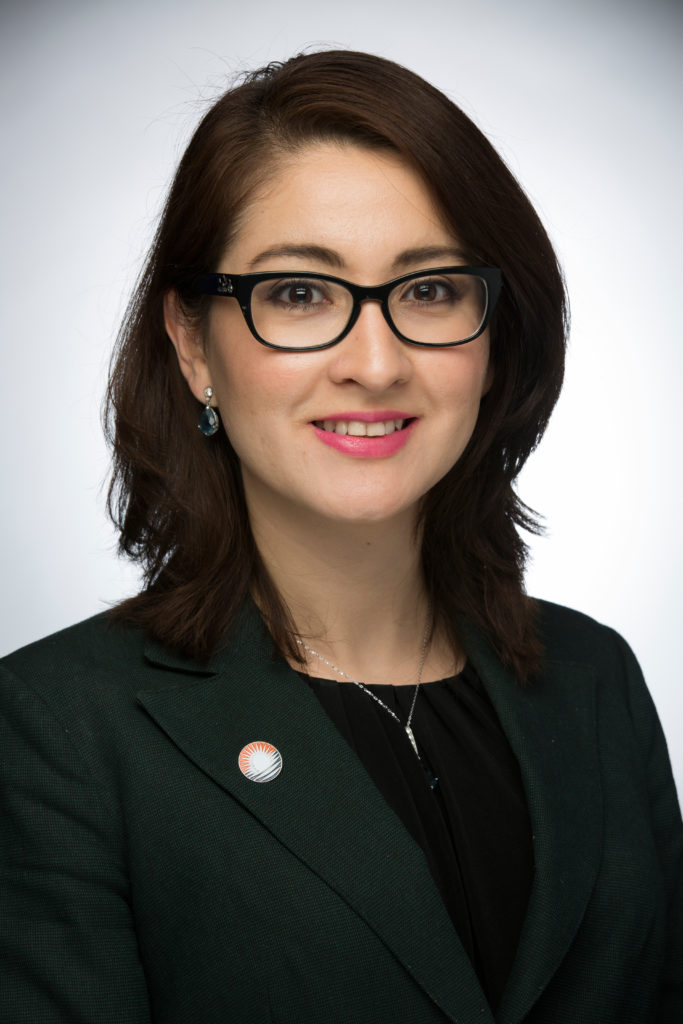
Contact Info:
Phone: (210) 458-6702
Office (TSERI): AET 2.303
Krystel.Castillo@utsa.edu
Bio:
Dr. Krystel Castillo is the Director of the Texas Sustainable Energy Research Institute (TSERI) at the University of Texas at San Antonio (UTSA). She is also the GreenStar Endowed Associate Professor the Mechanical Engineering Department.
Her research interests are mathematical modeling of supply chains; logistics; optimization of large-scale scenarios (meta-heuristics); statistical quality control and reliability. In summary, the application of Operations Research as well as statistical methods to model, analyze, and solve complex decision problems.
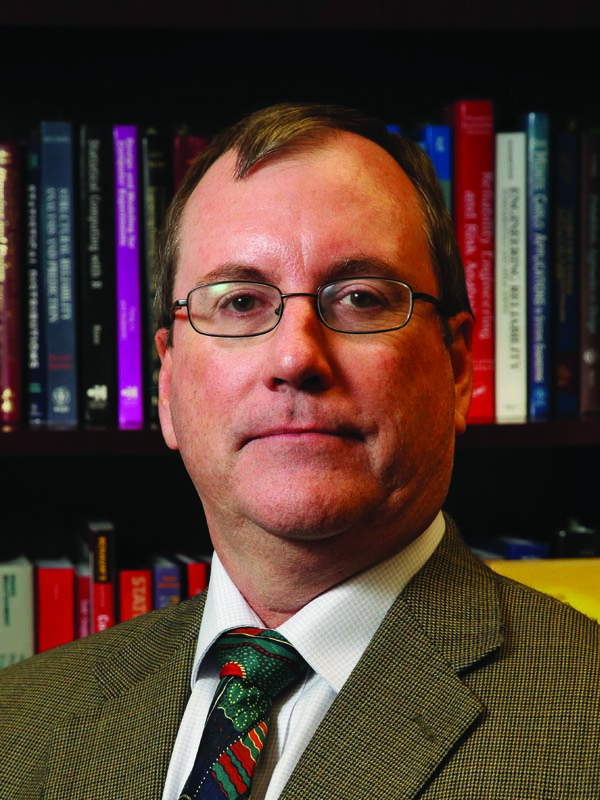
Contact Info:
AET 2.330
210-458-4481
harry.millwater@utsa.edu
Bio:
Dr. Harry Millwater is a Prefessor Professor of Mechanical Engineering in the Department of Mechanical Engineering at UTSA. He is interested in teaching Finite Element Methods, Fracture Mechanics, Probabilistic Engineering Design, Statics, and Mechanics of Materials.
His research interests include Probabilistic Methods for Risk Assessment of Gas Turbine Rotors, Development of Enhanced Probabilistic Life Prediction Methodologies for Engine Rotor Life Extension, and Innovative Methods for Engine Health Monitoring.

Contact Info:
Linkedin: linkedin.com/in/orlando-graves-bolaños-55354a32
Twitter: https://twitter.com/SubversiveArts
Bio:
Dr. Orlando Graves Bolaños is the Art Education Manager at The DoSeum located in San Antonio, Texas and a lecturer at the College of Human Development and Education at UTSA. His responsibilities at The DoSeum include Design, Training, and Coordination of multidisciplinary artistic teams to promote social change, as well as the management of arts and cultural programming destined to promote respect for diversity, intercultural coexistence, volunteering and civic participation. He is also open to collaborations with NGOs and Non Profits interested in using the arts for social transformation.
His specialties include Arts and Cultural Program Management, Special program design, Service Learning, Curatorial and events production. Volunteer recruitment and management, Institutional representation, Public Speaking, and lectures related to Art Education’s role in personal and social change.
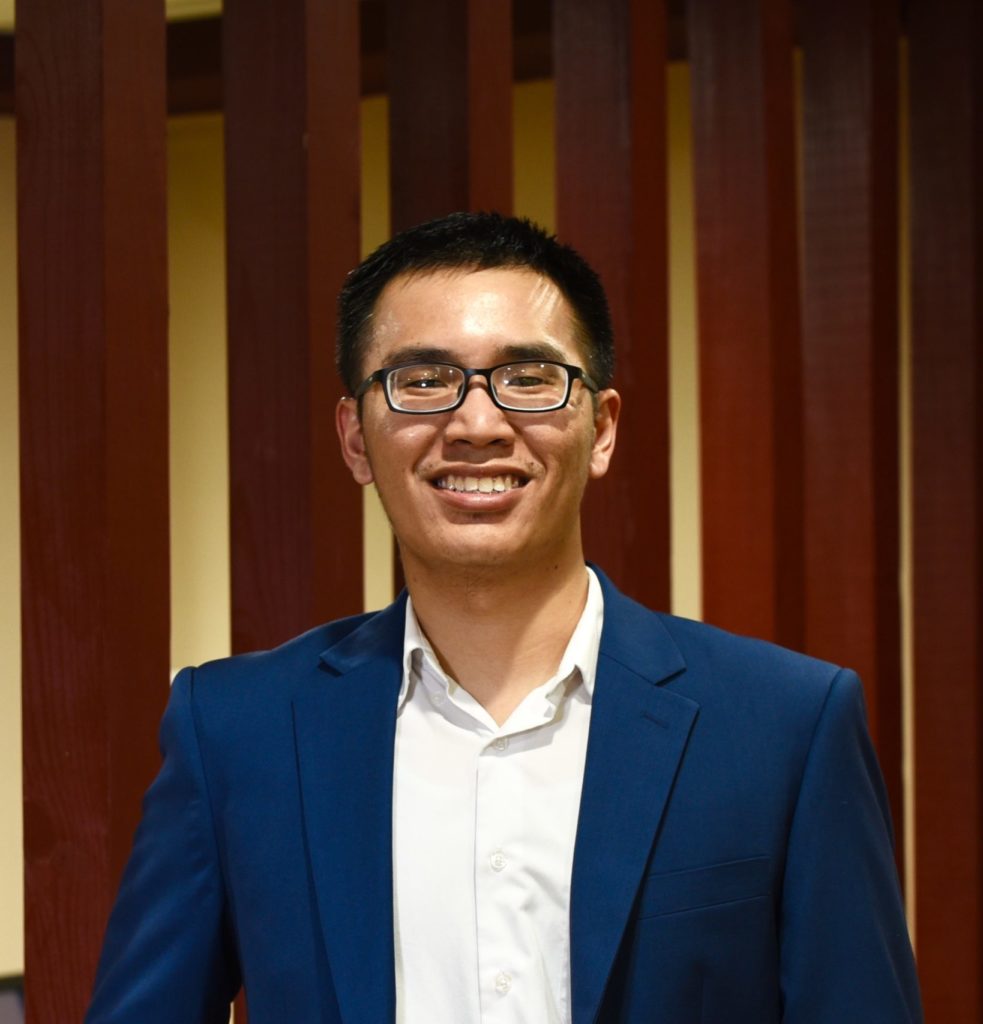
Contact Info:
nguyen.dao@utsa.edu
Bio:
Nguyen Dao is a Ph.D. candidate in Culture, Literacy, and Language at the University of Texas at San Antonio. Before moving to San Antonio, Nguyen used to work as an ESL teacher in Vietnam. Then he earned his M.Ed. in Curriculum & Instruction from the University of Houston and worked in Houston for two years as an academic program coordinator. His research interests include language learning, literacy practices, and identity among Vietnamese and Asian Americans.

Contact Info:
karla.garzagarza@utsa.edu
Bio:
Karla C. Garza is a PhD student in the Culture, Literacy, and Language program at the University of Texas at San Antonio. She earned a Master’s degree in Communication and Learning Disorders from Our Lady of the Lake University in San Antonio and a Bachelor’s degree in Communication Disorders from Texas A&M International University in Laredo, TX. Karla is a Bilingual Speech-Language Pathologist and has previous experience serving school-age children with speech and language impairments. Her research interests include typical/atypical language acquisition, bilingualism, and speech and language assessment and intervention for culturally and linguistically diverse populations.
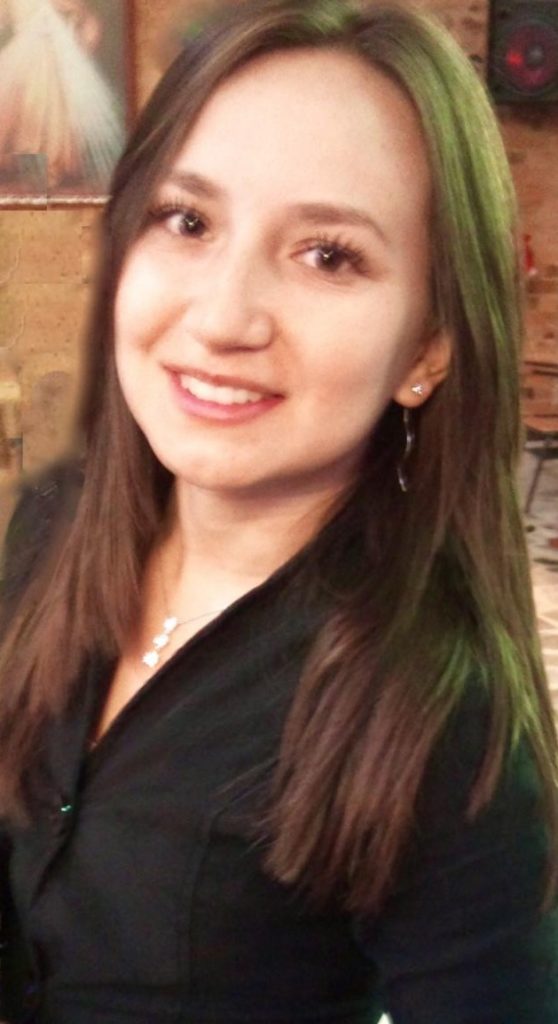
Contact Info:
lmartinc@msudenver.edu
Bio:
Dr. Lina Martín Corredor earned her Ph.D. in the Culture, Literacy, and Language program at UTSA. She holds a Master’s degree in Education -with a concentration in Education Leadership- from Carthage College. Lina has worked as a Graduate Research Assistant for three years in projects awarded with NSF grants, including two years of work with the “Transforming STEM Undergraduate Education through Academic Literacy, Mentoring and Professional Development” research project. In this project, she coordinates lesson study meetings, target lesson design, data collection, and data analysis. In addition, she collaborates on the dissemination of results through written publications and conference presentations.
Her teaching experience involves methodology courses for ESL teacher candidates, EFL courses, as well as Spanish as a foreign language, and heritage language courses both in the school and the tertiary level in Colombia and the United States. Her research centers on bilingual pedagogy, Spanish as a heritage language, and academic discourses in the home and school contexts. She is currently an Assistant Professor at Metropolitan State University in Denver, CO.

Contact Info:
victor95fm@gmail.com
Bio:
Victor Mendez is a master’s student in the Advanced Manufacturing and Enterprise Engineering program at UTSA. Previously he was a teaching assistant in Engineering Analysis I before joining the research team. My roles within this project include the leading of a TA training program with the assistance of Dr. Juliet Langman and Dr. Jorge Solis, the revision of Engineering syllabi and learning goals to improve their clarity and usefulness, and the mapping of the lesson study process throughout the semester.
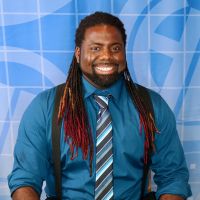
Contact Info:
Andrew.Walton@utsa.edu
Bio:
Andrew Walton is a Graduate Research Assistant and Doctoral Fellow in Culture, Literacy, & Language at the University of Texas at San Antonio. His GRA work consists of transforming STEM undergraduate education through academic literacy, mentoring, and professional development.
His research areas include:
(Language) Teacher Professional Development
Instructional Technology within the Second Language Acquisition Classroom
(Digital) Game-Based Language Learning
Technology Enhanced Language Learning with an emphasis on Immersive Technologies

Contact Info:
hector.castrilloncosta@utsa.edu
Bio:
Héctor R. Castrillón-Costa is a Doctoral Fellow in the Culture, Literacy & Language program and a Graduate Research Assistant at the University of Texas at San Antonio. He holds a Master’s degree in History of America from the InterAmerican University of Puerto Rico and in Bicultural & Bilingual Education from UTSA. As a GRA working in the “Transforming STEM Undergraduate Education through Academic Literacy, Mentoring and Professional Development” research project, he participates in and transcribes meetings, creates agendas, and works on developing academic papers to be presented in conferences and published in journals. His research interests include the presence of Creole languages in educational settings in the Caribbean Archipelago, the intersections between Native languages and STEM languages, and the theoretical and methodological decolonization of the history of the Caribbean Archipelago in the postcolonial era.
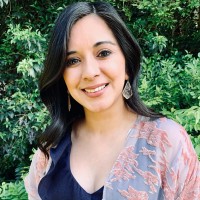
Contact Info:
janeth.martinez@utsa.edu
Bio:
Dr. Janeth Martinez-Cortes received her Ph.D. in Culture, Literacy, and Language from the University of Texas at San Antonio in May 2020. In her dissertation titled “Second-Generation Immigrant Latinx/a/os and their First-Generation College Experience: Counterstories of Success and Belonging,” she examined the educational experiences of Latinx/a/o students navigating higher education. Her research interests focus on issues related to Latinx/a/o first-generation college students, higher education, and second-generation immigrant education. She has worked with refugee students in the non-profit sector. She is a postdoctoral research fellow at the University of Texas at San Antonio, working on the project titled, “Transforming STEM Undergraduate Education through Academic Literacy, Mentoring and Professional Development”.fessional Development” research project, he participates and transcribes meetings, creates agendas, and works on developing academic papers to be presented in conferences and published in journals. His research interests include the presence of Creole languages in educational settings in the Caribbean Archipelago, the intersections between Native languages and STEM languages, and the theoretical and methodological decolonization of the history of the Caribbean Archipelago in the postcolonial era.

